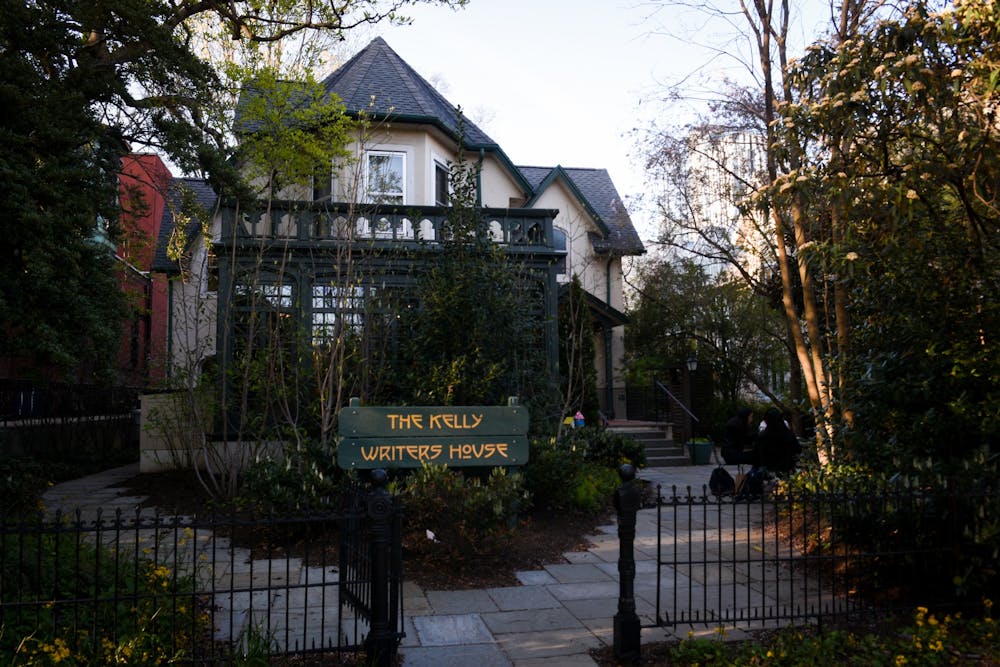
The event will happen on Nov. 9, 2022 at Kelly Writers House.
Credit: Derek WongKelly Writers House will host a reading of Penn creative writing professor Laynie Browne’s latest poetry collection on Wednesday.
The reading of “Translation of the Lilies Back into Lists” will be held in the KWH Arts Cafe on Nov. 9 at 6 p.m. and will be followed by a reception. The reading will be moderated by Al Filreis, a Kelly Family Professor of English and faculty director at KWH.
Browne’s experimental book consists of a collection of poems that are titled by date and resemble a to-do list. In her poems, she elaborates on the items on her list using parataxis, meaning they do not have a sequence or a narrative. The poems’ open-ended nature encourages readers and listeners to create meaning for themselves, according to Browne.
“We live in a world in which language on the surface appears to be transparent and transactional,” Browne said. “It seems like everything is just clear. But we also know that language can be more complicated than that. Poetry is an opportunity to experience language differently. Poetry itself is a language.”
A month into writing “Translation of the Lilies Back into Lists,” Browne’s mentor, C.D. Wright, passed away. This led Browne to dedicate the book as an elegy for Wright. Its title paid homage to Wright’s 1983 poetry collection, “Translations of the Gospel Back Into Tongues.”
Themes in Browne’s poems include mortality and the passing of time, which she illustrates using seasonal imagery. The book, which spans from December 2015 to May 2016, also describes the growth of her children.
“[I’m] trying to make sense of everything that’s happening every day and to celebrate the everyday, which I think requires a little bit of stepping back from the moment while being in it,” Browne said.
The book also contains black-and-white collages made by Browne that she created at the same time as her poems. At the reading, she will showcase the original collages in color.
According to Filreis, KWH specializes in experimental forms of poetry such as Browne’s. The poems, he added, subvert the audience’s expectations in multiple ways, from form to subject matter — and avant-garde styles can make the poems more accessible and interactive than traditional forms of poetry.
Attendees of the event are encouraged to converse with the speaker either during the reading or during the reception.
“This is the busiest time of the year academically, and [the reading] is a break from that,” Filreis said. “You come to a poetry reading open-minded and ready to think in different ways. There’s nothing more satisfying, indeed more helpful, than spending an hour being brought to another place linguistically.”
Browne is also the coordinator for the Modern & Contemporary American Poetry massive open online course, a free program taught by Filreis for over 60,000 participants worldwide. In addition to running the large-scale program, Filreis is teaching ENGL 1830, a Penn equivalent credit-bearing course that Penn students can take in person.
KWH is open to all students. Students have staff have emphasized its welcoming environment, which encourages intimate gatherings such as writing groups. The house also provides recordings and archived poetry online via PennSound.
“We’re all really interested in giving students tools to express themselves but also question assumptions, about what it means to live together in a community at a time of elections and pandemics,” Director of the Creative Writing Program Julia Bloch said. “Poetry has the unique ability to bring us together in a really beautifully questioning mode and give us new tools for expression.”
The Daily Pennsylvanian is an independent, student-run newspaper. Please consider making a donation to support the coverage that shapes the University. Your generosity ensures a future of strong journalism at Penn.
Donate







